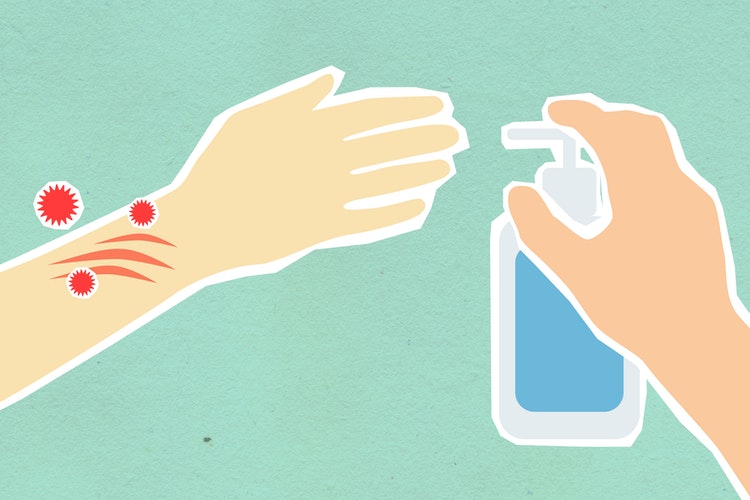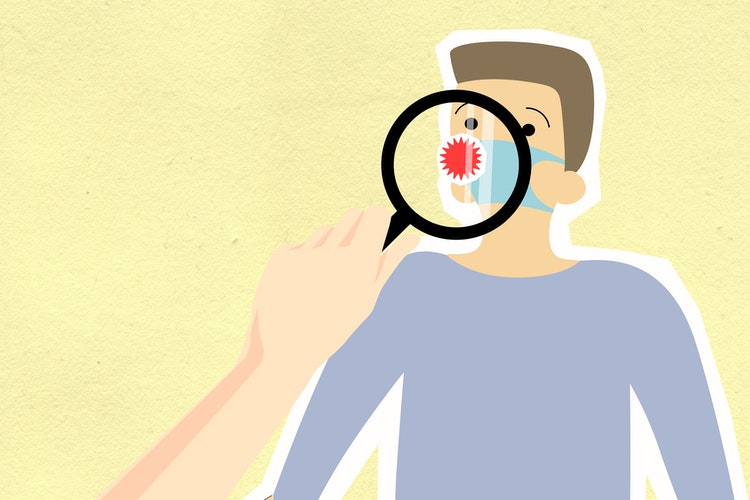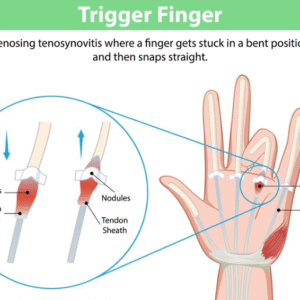Although preventing the spread of germs should always be a priority, it’s become particularly important throughout the past couple years. In the light of the COVID-19 pandemic, many of us have begun rethinking certain habits and behaviors we once regarded as commonplace.
How to Prevent The Spread of Germs
Fortunately, preventing the spread of germs is much easier than many people make it look. A few simple changes in your behavior can help curb the spread of germs, much to the benefit of both you and the people around you. So, if you’re looking to send germs packing, take the following pointers to heart.
Keep Your Hands Clean

While proper handwashing may seem like a no-brainer, a staggering number of us just can’t seem to get it right. So, regardless of how cumbersome you may personally find handwashing, you’d do well to make it a priority. To start with, make a point of washing your hands for at least 20 seconds after sneezing or coughing into them, using the bathroom or handling items that are potentially germ-laden – i.e., items that many other people have touched.
Handwashing is also important when dealing with certain foods, especially raw eggs and meat. Since germs from hands can easily be transferred to other objects, you’re protecting both yourself and those around you by getting on board with handwashing.
Handwashing can be particularly confounding to young children, who are generally unbothered by germs and fail to recognize the threat they present. Parents and educators can nip this in the bud by emphasizing proper handwashing practices at every available opportunity and leading by example. After all, if your children see you failing to embrace proper handwashing practices, they’re unlikely to regard washing their hands as important.
While soap and water washings are ideal, they may not always be possible depending on where you happen to be. With this in mind, make a point of keeping a travel-sized container of hand sanitizer on hand whenever you venture out into public.
Regularly Disinfect Surfaces
A fair number of germs live and thrive on certain surfaces. So, if the surfaces in your home are rarely disinfected, you’d do well to rethink this policy. Kitchen-based surfaces – like countertops, tables and cutting boards – are particularly germy, so take care to give them special attention. For maximum safety, the surfaces in your kitchen should be disinfected on a daily basis – sometimes even multiple times per day.
Fortunately, this doesn’t have to be a time-consuming exercise. In many cases, a good scrub-down with high-quality disinfect wipes shouldn’t take more than a few minutes. Furthermore, since these wipes are affordable on even the tightest budget, keeping them on hand shouldn’t prove financially strenuous. You can also help prevent the spread of harmful bacteria by purchasing products that incorporate antimicrobial technology.
Avoid Touching Your Face

It’s in your best interest to minimize how often you touch your face. Although many of us touch our faces many times throughout the day without even thinking about it, this common behavior can be highly conducive to the spread of germs. Touching your face with dirty hands can be particularly dangerous, so at the very least, make sure to thoroughly scrub your hands if you have a need to place them on your face.
For example, if you need to rub your eyes or blow your nose, make sure to wash your hands before doing so. By extension, it is imperative that your hands be properly washed before you eat any finger foods.
If you’ve grown accustomed to frequently touching your face, avoiding this behavior is liable to take some work. However, after a few weeks of being mindful of your face-touching, you’re liable to find that not placing your hands on your face comes naturally.
Taking measures to prevent the spread of germs can positively impact both you and everyone around you. From family to coworkers to strangers you encounter in public, everyone stands to benefit from increased attention to germs. And while many people make it look difficult, preventing the spread of germs is much easier than you may think. Committing to change unsafe behaviors and making an effort to educate those around you can protect you and your loved ones and be a boon to public health as a whole.






